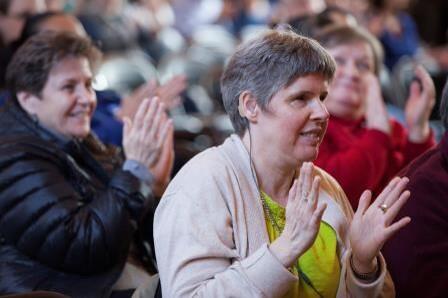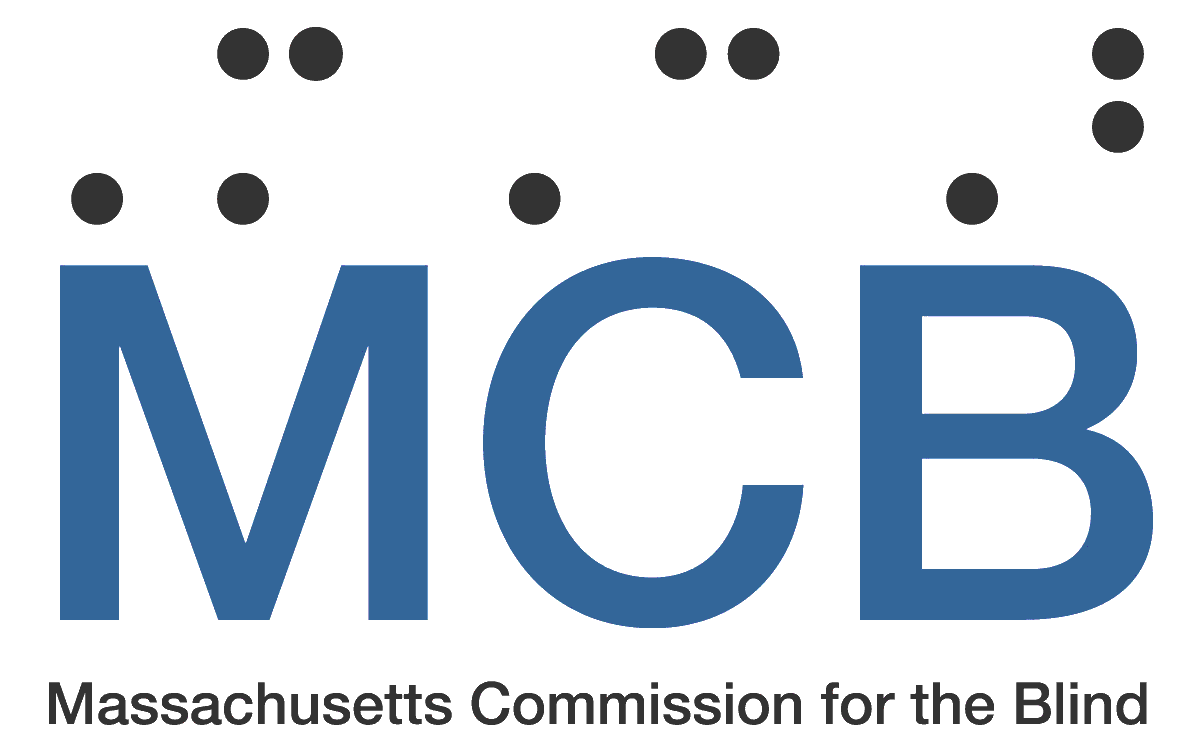- Massachusetts Commission for the Blind

By Owen Devlin
Q&A with Tracey Reynolds, Employee at National Braille Press
Tracey Reynolds is DeafBlind and an employee at National Braille Press where she has worked for more than 30 years providing information in Braille to increase access to information for individuals who are blind and visually impaired.
1. Tell us more about yourself.
“My name is Tracey Reynolds. I am DeafBlind, and I currently live in Watertown, MA. I grew up in Vermont, but later moved up to the Boston area to attend Perkins School for the Blind where I graduated in 1988.”
2. How do you spend time outside of work?
“I enjoy doing a variety of things outside of work. I enjoy reading Braille books and magazines. I also enjoy listening to my radio, going for walks, shopping, and meeting new people.”
3. Where are you currently working?
“I currently work at the National Braille Press in Boston where I assist in putting books and magazines together. I check the page numbers on the books and use a machine to stitch the magazines pages together. I push down on the machine with my foot, so that the pages can get stitched together, almost like a stapler. I have worked here for 33 years now.”
4. Do you use any assistive devices to help you complete tasks at work?
“Currently, I use a BrailleNote Touch device...I write e-mails and communicate with others on it. In addition, I also have two hearing aids, and use an FM Radio system, so that I can hear others more clearly.”
5. If you come across an obstacle at work, how do you approach the situation?
“If I am struggling at work, I usually ask my co-worker or supervisor to provide me with clear instructions about a task I have to complete.”
6. Why do you feel that your work is important?
“Work is very important to me because it keeps me busy. I do not like sitting at home and being unproductive. I would suggest that other DeafBlind or blind individuals talk with their MCB counselors about getting a position at the National Braille Press, or another agency like it if they are interested.”
7. During the pandemic, was your routine different? Did you work? If so, how did you do that? If you were not working, how did you stay busy?
“During the pandemic, I was out of work from March 2020 until June of that year. During that time, I went to stay with my parents in Vermont, and went for walks with my Mom everyday. I also listened to my radio and kept in touch with my other DeafBlind friends through e-mail on my BrailleNote Apex device.”
8. Why do you think that spreading the word about DeafBlind Awareness Week is important?
“I feel that spreading the word about DeafBlind Awareness Week is very important. It is important for individuals who are not DeafBlind to recognize the fact that DeafBlind individuals are human beings just like them, but need some additional supports in their communities.”
9. Do you have any advice for individuals adjusting to vision and/or hearing loss?
“I would encourage individuals with vision and/or hearing loss to use a white cane in helping them navigate their community, to inquire about receiving Orientation and Mobility training, and to find new ways of communicating with others. I would also encourage individuals who are DeafBlind or blind to inquire about receiving services from the Helen Keller National Center (HKNC) as well.”
10. What is your life motto?
“My life motto is one I remind myself of quite often. I encourage myself to never give up, and to take one day at a time.”
